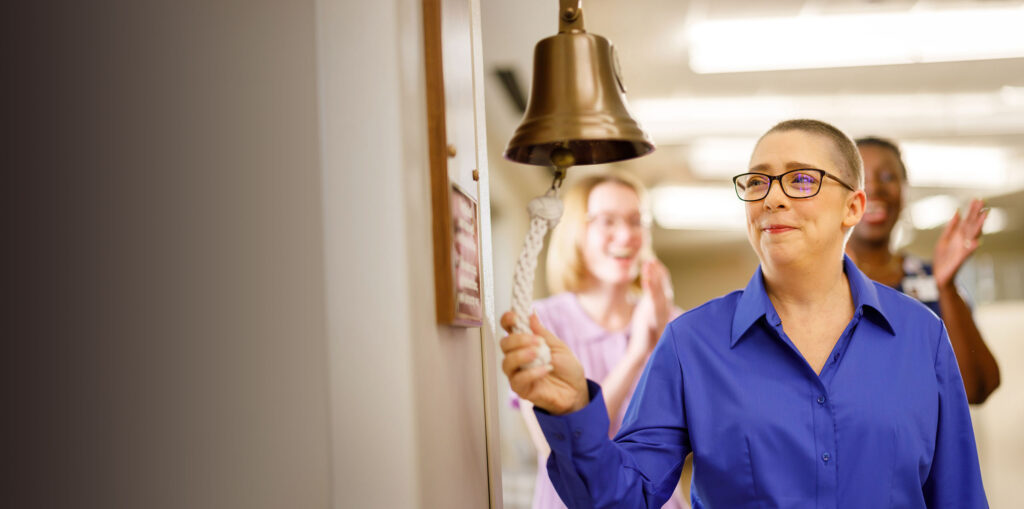Once you’ve received a detailed cancer diagnosis, your care team will begin creating your treatment plan. Your treatment is completely personalized to your specific needs, and can vastly differ between patients, even if you have the same kind of cancer. What type of cancer you have, the stage of your cancer, your existing health issues and even your personal preferences are all taken into account when deciding the best course of treatment. Sometimes, multiple treatment options may be considered. At Baptist Health, your physician will walk you through the pros and cons of each plan, and work with you to choose the right plan.
Each treatment plan usually involves one, multiple or all of the following: surgery, medications, and radiation. At UAMS Baptist Health Cancer Centers, we offer every possible piece of your cancer treatment plan, all so you can rely on the strongest forces in healthcare for every step of your cancer journey.
Surgery
Surgery can be used to remove the cancerous tumor or cells from the body. These procedures can range from quick and minimally invasive to major surgeries where entire organs or parts of the body are removed. The type of surgery used is determined by the type of cancer you have and how extensively it has spread through the body.
Medications
The most commonly known medication used to fight cancer is chemotherapy administered in an infusion center setting through an IV. Chemotherapy can also be given in pill form. Chemotherapy, or medical oncology or hematology, destroys or slows the growth of cancer cells. Though it can be highly effective, chemotherapy may also come with difficult side effects, including nausea, fatigue and hair loss. At Baptist Health, your care team offers an array of resources to help alleviate side effects as much as possible.
Other cancer medication services include targeted therapy, which attacks specific parts of cancer cells, and immunotherapy, which uses the body’s immune system to fight cancer cells.
Radiation Therapy
Radiation uses high-energy radiation beams to kill cancer cells. These beams are similar to an x-ray, but are much more potent. Radiation treatments typically only last a few minutes.
Clinical Trials
When it comes to advanced cancer care, clinical trials are often the most effective way to provide patients with access to novel, potentially life-saving treatments. For oncologists, keeping up with the latest research can be a challenge. That’s why we want to highlight the resources available to your patients through our cancer care program.
Patients of UAMS Baptist Health Cancer Center have access to the state’s largest cancer clinical trials network through the UAMS Winthrop P. Rockefeller Cancer Institute — Arkansas’ only academic cancer research center with more than 150 scientists focused on high-incidence cancers affecting Arkansans.
Patient Referrals and Enrollment
Referring a patient is simple. If you believe a clinical trial could benefit your patient, we encourage you to discuss this option with them. Our team can help determine their eligibility for any of our hundreds of active trials.
By referring your patients to a clinical trial at the UAMS Winthrop P. Rockefeller Cancer Institute, you’re not just offering them a new treatment option—you’re giving them access to the future of cancer care and contributing to global advancements in oncology.
To learn more about our available clinical trials or to discuss a potential referral, please contact (501) 686-8288, email CancerClinicalTrials@uams.edu or visit cancer.uams.edu/clinical-trial/.

